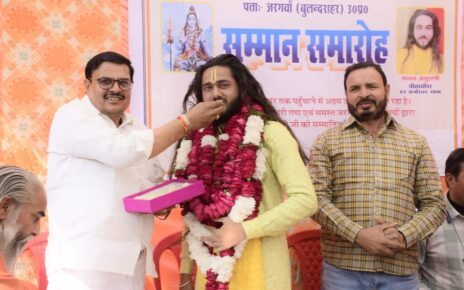July 1st, 2025. Mumbai, India -It’s a July morning like any other, but two very different scenes unfold across the country.
In the emergency ward of a crowded government hospital, a junior doctor wraps up his 36-hour shift. His legs tremble, his eyes are red from exhaustion, and there’s been no time for a proper meal, just a chai sipped between two emergencies. As he reaches for his bag, a nurse calls out: “Ek aur case aaya hai, doctor saab.” He turns around, duty pulling him back in.
Hundreds of kilometres away, in a quiet home in Maharashtra, time stands still. A pair of grieving parents sit before a framed photograph of their daughter, an MD resident who cleared her final exams just weeks ago. She’s smiling in her white coat. That smile is now a memory. She died by suicide last month.
This isn’t fiction. According to RTI data from the National Medical Commission, 119 medical students died by suicide between 2018 and 2023, and 58 of them were postgraduates. That’s nearly one death every 15 days, often unnoticed, often unspoken.
As India observes National Doctors’ Day, this year’s theme, “Caring for Caregivers”, hits home. Behind every diagnosis and prescription is a person battling exhaustion, pressure, and silence.
These contrasting snapshots form the duality of Indian healthcare today: healing and heartbreak. And on this National Doctors’ Day, as the nation honours those who dedicate their lives to medicine, the theme could not be more fitting: “Caring for Caregivers.”
The Caregiver’s Crisis
A 2024 survey conducted by the National Medical Commission revealed that nearly one in three postgraduate medical students had experienced suicidal thoughts. Alarmingly, over 10% had formulated a plan, and close to 5% had already attempted suicide in the past year. These numbers underscore a systemic emergency rather than isolated distress.
These are not just numbers; they are names, faces, futures. In June 2025 alone, reports emerged of multiple resident doctors across India tragically taking their own lives, often found in their hostel rooms, leaving behind unanswered questions and grieving families. These incidents are part of a growing and deeply concerning trend that continues to plague India’s medical community, particularly among young postgraduates enduring immense academic and emotional pressure.
India’s medical system, it appears, is grappling with an epidemic far more silent than any virus: mental health crises among its caregivers.
A Profession Pushed to the Brink
Postgraduate doctors in India often endure 36 to 48-hour shifts and emotionally taxing environments, especially in government-run hospitals. This relentless pressure is compounded by hierarchical work cultures, the expectation of stoicism, and often, inadequate institutional support.
According to an IMA‑Goa study, 42% of physicians in Goa exhibit symptoms of burnout (depression, anxiety, emotional exhaustion)
Further, 12–15% admit to risky alcohol use, and among them, 20% drink to cope with stress
The tragedy is twofold. Not only are doctors under immense physical and emotional strain, but the stigma surrounding mental health within the medical fraternity also keeps many from seeking help. The fear of being perceived as “weak” or “unfit” prevents open conversations and early interventions.
Breaking the Silence
In recent months, a wave of medical professionals has taken to social media to share their struggles. This shift in narrative is new and necessary. Doctor-Influencers have publicly discussed the mental health burden faced by doctors, using their platforms to call for empathy and policy reform. While these voices offer hope, systemic support remains scarce.
Not Just a Token Day
National Doctor’s Day, observed on July 1st in India, marks the birth and death anniversary of Dr. Bidhan Chandra Roy, a physician, freedom fighter, and former Chief Minister of West Bengal. The day is often marked by floral tributes, tokens of appreciation, and ceremonial speeches. But this year’s theme, “Caring for Caregivers,” demands something more: action.
Gratitude must be paired with structural change. Some of the most urgent reforms include:
●Safe and inclusive work environments for junior doctors
●Access to confidential mental health counselling
●Work-hour regulations to prevent chronic burnout
While medical education and clinical exposure are vital, they should not come at the cost of a young doctor’s physical and emotional well-being.
The Public’s Role
The doctor-patient relationship in India is often fraught with high expectations and, unfortunately, rising instances of violence against healthcare workers. The public has a crucial role to play in changing this narrative.
Treating doctors with respect and empathy, understanding the pressures they operate under, and supporting initiatives that protect their welfare can make a tangible difference. Society must move away from seeing doctors as superhuman and instead acknowledge their very human vulnerabilities.
Why Psychiatric Intervention Matters for Doctors
Doctors are trained to diagnose and treat, but often not to pause and process. In high-stress medical environments, emotional fatigue, chronic anxiety, and depressive symptoms can go unnoticed until they manifest as burnout or crisis. Psychiatric intervention plays a crucial role in early identification, clinical stabilization, and long-term recovery.
Unlike general wellness strategies, psychiatric care provides structured, evidence-based support
“Even the strongest hands that hold the scalpel can tremble in silence. Seeking help doesn’t make you less of a doctor, it makes you human.”
— Dr. Anjalika Atrey, Psychiatrist
Caring Begins Within: How Dr. Anjalika Atrey Can Help
Dr. Anjalika Atrey is a Mumbai-based Consultant Psychiatrist specialising in trauma, addiction, and caregiver burnout. She provides evidence-based care to support doctors in reclaiming their well-being.
As a psychiatrist with extensive experience supporting professionals in high stress positions, Dr. Anjalika Atrey offers specialized, confidential care for those in medicine who are silently struggling with burnout, anxiety, depression, trauma, and suicidal ideation.
Her approach integrates evidence-based psychotherapy with judicious pharmacological management. While many doctors are aware of mental health conditions, stigma and internalized expectations often prevent them from seeking treatment, especially when it comes to medication.
However, psychiatric medications are not a sign of weakness, but a clinically validated tool that can be life-saving. Just as antibiotics are prescribed for infections, antidepressants, anxiolytics, and mood stabilizers can help reduce acute distress, and restore baseline functioning. For individuals experiencing persistent insomnia, intrusive thoughts, or difficulty coping, medication can offer the stabilization needed to fully benefit from therapy and daily functioning.
Dr. Atrey provides:
• Diagnosis and management of depression, anxiety, burnout, PTSD, and related conditions
• Pharmacological treatment tailored to the individual’s clinical profile and occupational demands
• Supportive and cognitive-based therapy, including stress and emotion regulation
• Caregiver-specific counselling for medical professionals navigating high-pressure environments
• Crisis planning and suicide prevention interventions
In her practice, every conversation is met with clinical competence and deep empathy, without judgment, without labels. For those who spend their days caring for others, Dr. Atrey offers a space where your well-being becomes the priority.
The COVID-19 pandemic briefly placed healthcare workers on a pedestal. Applause rang out, and social media flooded with tributes. But as the pandemic waned, so did the recognition. What remains are the scars, burnout, PTSD, and an increasing number of suicides.
Doctor’s Day 2025 is not just an occasion for symbolic gestures. It is a chance to reflect on a system that, while saving countless lives, often fails its own. Behind every successful surgery, every long shift, and every reassuring word is a person fighting their own battles. It’s time for society and the state to not only expect care from doctors but also to offer care in return.
If you or someone you love is struggling, don’t wait in silence; reach out at +91 8108823569, write to us at [email protected], or visit www.thepsychiatrist.in. Hope and healing are just a conversation away.
#DoctorsDay2025 #NationalDoctorsDay #CaringForCaregivers #BehindTheMask #MentalHealthMatters
#MentalHealthForDoctors #DrAnjalikaAtrey #PsychiatristinMumbai #TherapyinMumbai #PsychiatristforDoctors
#DoctorBurnout #SupportOurDoctors #HealthcareHeroes #DoctorSuicides #BurnoutInMedicine #DepressionInDoctors #Suicide #SuicidePrevention #IndianDoctors
#HealthcareInIndia #MedicalCommunityIndia #ResidentDoctorLife #DoctorsOfIndia




